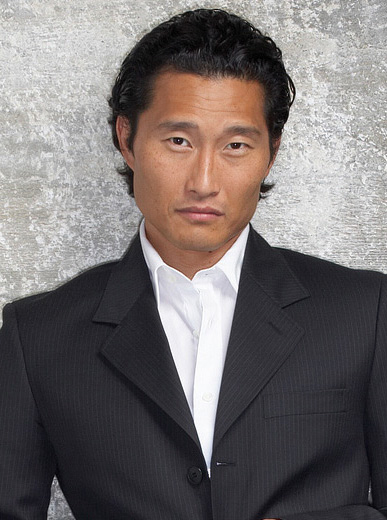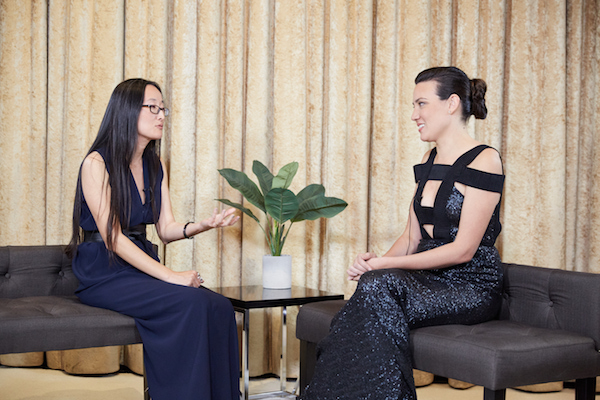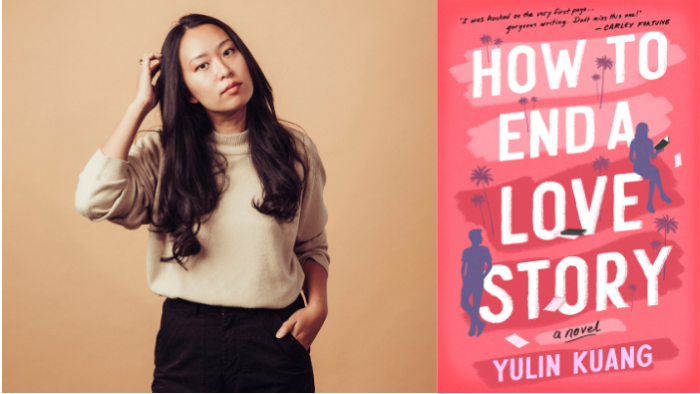It’s just about 11:20 p.m. in Bulgaria, where the upcoming “Hellboy” reboot is being filmed, and Daniel Dae Kim is on the phone explaining his impossible, yet somehow possible, schedule.
“I have a 6 a.m. call time for work tomorrow. I have a good two hours of calls and emails to take before bed tonight,” Kim said. “My life is busy. But this is the busy that I asked for. I wouldn’t trade it because I feel like the work I’m doing is worthwhile. It’s very personal to me. I’m enjoying it. I’d rather be this busy than feeling frustrated that I’m not doing enough.”
Not doing enough may be the least of the actor-producer’s worries at the moment. His hustle-or-bust ethic has propelled him through more than 100 episodes each of ABC’s “Lost” and CBS’ “Hawaii Five-0.” It’s brought, against the odds, a remake of the Korean drama “The Good Doctor” to American network television, with his name attached as executive producer through his company 3AD. And it continues — 3AD has additional projects in the works, including another K-drama remake and a new first-look deal with ITV Studios America.
In 2017, headlines about pay equity ran for days following Kim and co-star Grace Park’s exits from “Hawaii Five-0” after their seven-season runs as Chin Ho Kelly and Kono Kalakaua. The emerging dialogue was that of a salary difference between Asian American and white actors, even more so after Kim wrote on Facebook calling for “a path to equality.”
But Kim hadn’t posted that statement to speak on just race. It’s important, he agreed, that his exit from the show triggered such concentrated discussion about people of color in Hollywood, but by “equality” he meant in all aspects — gender, sexual orientation, religion. “When I said what I did about equality, I meant it in every sense of the word,” Kim said. “Of course, race is a part of that, but it speaks to what a hot-button issue race relations are in America that it became the sole takeaway in the discussion.”
Kim’s the first to understand why that is. Through the some two-plus decades he’s been doing this, he’s witnessed firsthand Asian American mis- and under-representation in media. It’s why he formed such a strong connection to Chin Ho. “Chin Ho was a representation of what I thought an Asian American could be in terms of the way I approached his character. Over seven seasons, you were able to see a fully realized, three-dimensional character. It meant a lot to me that he was able to have a romance, he was involved in action, he was involved with very personal friendships, he was a good colleague, he was loyal and exemplary,” Kim said.

(Courtesy photo/Harold Julian)
By positioning himself as a producer, Kim’s taking the first steps to becoming what he calls a part of the solution. Sebastian Lee, one of the executive producers of “The Good Doctor,” worked closely with Kim to bring the show on the air. Whereas Lee describes series developer David Shore as the father of the show, he says Kim is the mother who makes sure everyone on set feels warm and welcomed. “Even for every single extra, he talks with him and tells them, ‘You are starting here, but with passion you can make your dreams come true,’” Lee said. “He’s always encouraging all the actors. Whenever I see him doing that, I really respect him as a person, as an actor and as a fellow producer.”
Pointing to Bruce Lee, George Takei and Pat Morita as pioneers whose work has allowed him to stand where he is today, Kim said he’d like to do the same for the generations that come after him. “Instead of constantly begging networks and producers for Asian American roles, I just decided it was time to create them for myself, and not just for me specifically, but for Asian Americans, and anyone else, who have been traditionally underrepresented in the media,” Kim said. “I believe that those who are lucky enough to be in a position to help, should. That’s ultimately how we make progress.”
Right now, creating those opportunities for aspiring talents who remind Kim of his own days as a struggling actor is very much a reality. After he wraps up filming “Hellboy,” in which he plays Major Ben Daimio, the work doesn’t stop. So, is it as they say, “Sleep when you’re dead”? “I need my sleep, don’t get me wrong,” Kim said, laughing. “When I can find it.”
This story appears in Kore Asian Media’s 2018 Annual Issue. Order your free copy now at charactermedia.com/subscribe.






